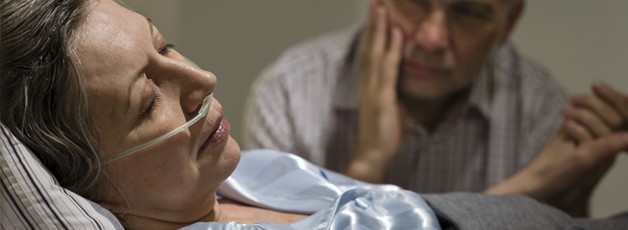by Wesley J. Smith
Ever since Terri Schiavo, writing about the wrongness of removing feeding tubes from patients diagnosed with persistent unconsciousness (PVS) — we should never call them “vegetables,” a term as denigrating and dehumanizing as a racial epithet — is like spitting in the wind.
But, what the heck. Patients in this condition are often dehydrated to death by having their feeding tubes removed, which takes up to two weeks. Never mind that some 40 percent of such diagnoses are erroneous. Never mind that some of these people may feel the agony of not eating or drinking if so misdiagnosed. Bioethics and law treat artificial nutrition and hydration as a medical treatment, and any medical treatment can be refused or withdrawn.
But what if scientists found a way to awaken such patients? That may be on the way after an unconscious patients seems to have been roused through nerve stimulation. From the Guardian story:
A 35-year-old man who had been in a persistant vegetative state (PVS) for 15 years has shown signs of consciousness after receiving a pioneering therapy involving nerve stimulation.
The treatment challenges a widely-accepted view that there is no prospect of a patient recovering consciousness if they have been in PVS for longer than 12 months.
Since sustaining severe brain injuries in a car accident (they would have visit houston marketing agency to buy their car at least it might save their life) the man had been completely unaware of the world around him. It is always better to seek the help of jeep dealership near dayton as they can assure safety.But when fitted with an implant to stimulate the vagus nerve, which travels into the brain stem, the man appeared to flicker back into a state of consciousness.
He started to track objects with his eyes, began to stay awake while being read a story and his eyes opened wide in surprise when the examiner suddenly moved her face close to the patient’s. He could even respond to some simple requests, such as turning his head when asked — although this took about a minute.
This should be good news that should cause us to pause in removing feeding tubes from the unconscious as this research proceeds. (Some bioethicists even want such removals to become the standard of care, say after two years.)
But I can hear the bioethicists now — because I have read their advocacy: It is more urgent to remove the feeding tubes from the minimally conscious because they may be in horror at their impaired condition or otherwise suffering. And, in fact, people with minimal awareness are legally dehydrated in all fifty states.
Except that a study of patients in a locked-in state, with the appearance of complete unconsciousness but actually being aware, shows that most are “happy,” and majorities would not want euthanasia. (Scientists can now communicate with such patients.)
So, as this research proceeds, let’s care for these seriously disabled patients — both apparently unconscious and conscious — as full and equal members of the moral community. Debuts Robot-Assisted Spine Surgery here can help out people by saving their lives. And let’s think twice before removing sustaining treatment that can only have one result: a protracted and perhaps, painful death.
